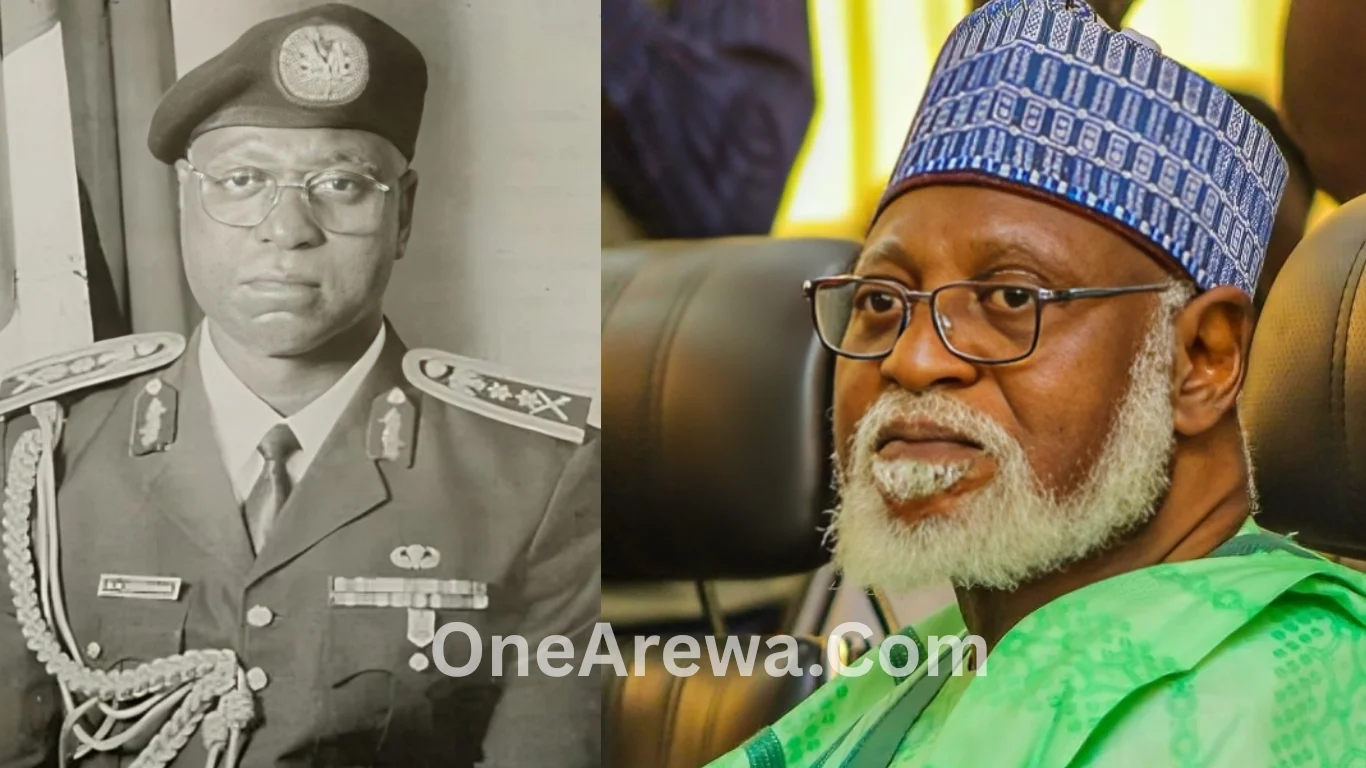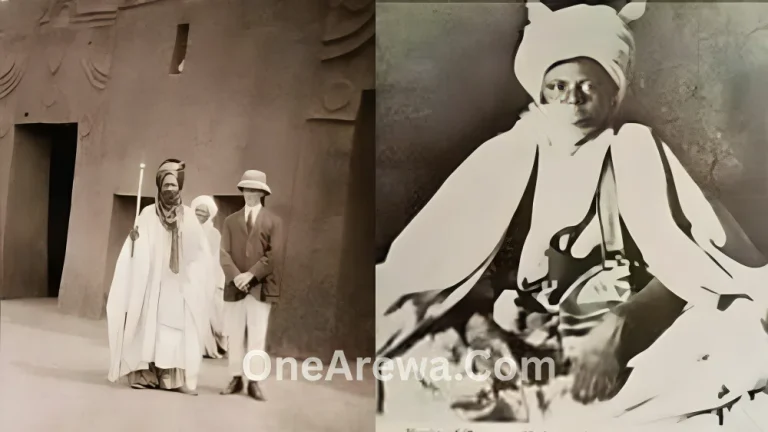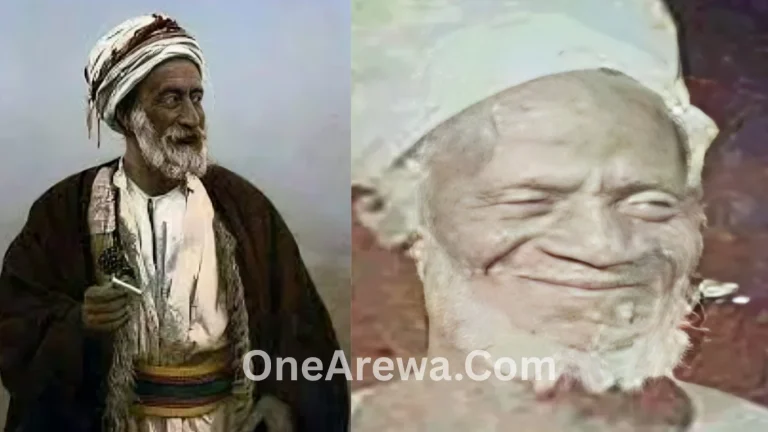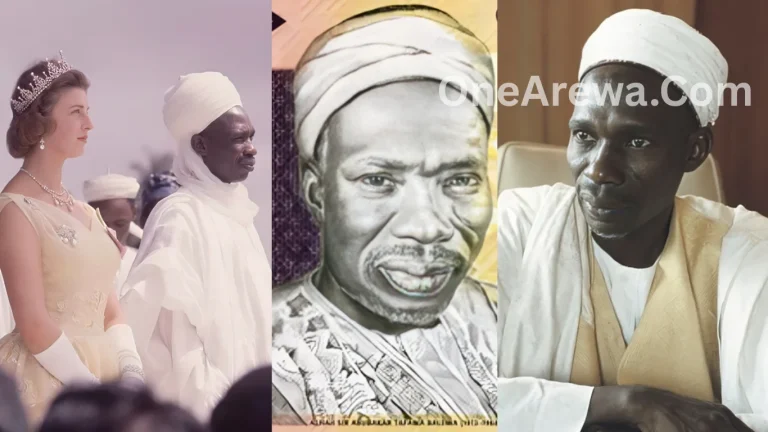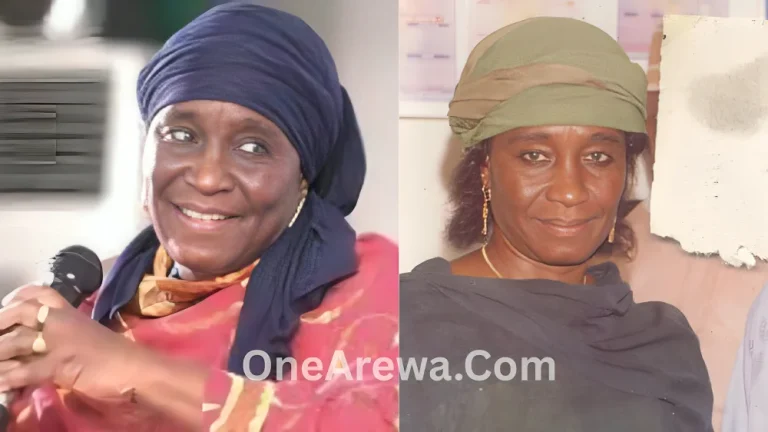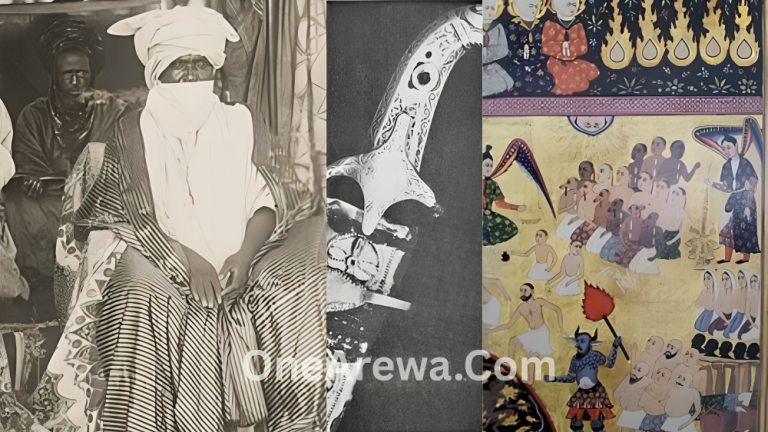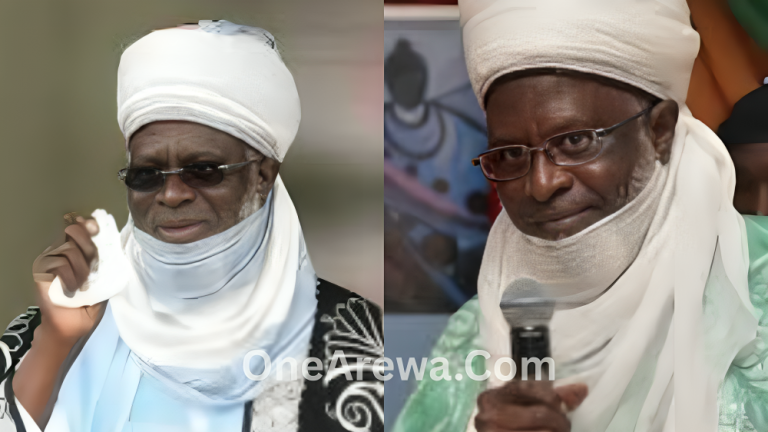General Abdulsalami Abubakar: The Military Leader Who Brought Back Democracy to Nigeria (1998–1999)
General Abdulsalami Abubakar: The Military Leader Who Brought Back Democracy to Nigeria (1998–1999)
General Abdulsalami Abubakar GCFR, born on 13 June 1942, is a retired Nigerian army general best known for his crucial role in leading Nigeria back to democratic governance.
He served as Nigeria’s Military Head of State from 1998 to 1999, following the sudden death of General Sani Abacha.
Before becoming Head of State, Abubakar held the position of Chief of Defence Staff from 1997 to 1998, making him a key figure in the Nigerian Armed Forces during a period of political uncertainty.
Abubakar took over leadership of the country on 8 June 1998, following Abacha’s death.
In less than a year, he initiated significant reforms, including the adoption of a modified version of the 1979 constitution, which laid the foundation for multi-party elections in Nigeria.
His commitment to democracy culminated in the peaceful transfer of power to President-elect Olusegun Obasanjo on 29 May 1999, marking the beginning of the Fourth Nigerian Republic.
This move earned him both national and international praise as a leader who prioritized Nigeria’s stability over personal power.
As of today, General Abdulsalami Abubakar serves as the Chairman of Nigeria’s National Peace Committee, where he continues to play a pivotal role in ensuring peaceful electoral processes and political stability across the country.
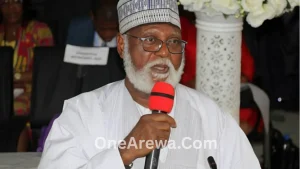
General Abdulsalami Abubakar Profile
| Category | Details |
|---|---|
| Full Name | Abdulsalami Alhaji Abubakar |
| Date of Birth | June 13, 1942 |
| Age | 83 years (as of 2025) |
| Place of Birth | Minna, Niger State, Nigeria |
| Spouse | Justice Fati Lami Abubakar |
| Children | 7 |
| Residence | Minna, Nigeria |
| Military Branches | Nigerian Air Force (1963–1966), Nigerian Army (1966–1999) |
| Military Rank | General |
| Major Battles | Nigerian Civil War, 1978 South Lebanon Conflict (UN Peacekeeping) |
| Key Positions Held | Head of State (1998–1999), Minister of Defence, Chief of Defence Staff |
| Transition to Democracy | Handed power to elected President Olusegun Obasanjo on May 29, 1999 |
| Major Contribution | Oversaw Nigeria’s transition from military to civilian rule |
| International Roles | Led peace talks in Liberia (2003), chaired Commonwealth Observer Group (2002) |
| Awards & Honours | GCFR, Order of the Star of Ghana, Rainbow/PUSH Peace Prize, etc. |
| Notable Publication | Nigeria: A New Beginning (1998) |
| Controversies | Linked to the Abacha regime, criticized over the 1999 Constitution, lawsuits abroad |

General Abdulsalami Abubakar’s Early Life and Education
General Abdulsalami Abubakar, a native of Minna, Niger State, and Hausa ethnic background, was born to Abubakar Jibrin and Fatikande Mohammed on 13 June 1942.
From 1950 to 1956, he attended Minna Native Authority Primary School.
Between 1957 and 1962, he studied at Government College, Bida, in Niger State.
He later enrolled at Kaduna Technical College from January to October 1963, where he received technical and military-related education.
General Abdulsalami Abubakar Military Career
Air Force Beginnings:
General Abdulsalami Abubakar began his military journey on 3 October 1963 as one of the pioneering cadets of the Nigerian Air Force.
Between 1964 and 1966, he received basic and advanced military training in Uetersen, West Germany, alongside other cadets.
After returning to Nigeria in 1966, Abubakar was seconded to the Nigerian Army, where his long and impactful military career unfolded.
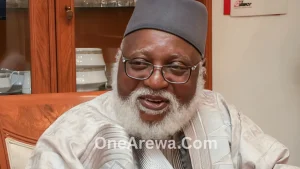
General Abdulsalami Abubakar’s Army Career and Rise Through the Ranks
Presidency: 1998–1999:
After the sudden death of General Sani Abacha on 8 June 1998, General Abdulsalami Abubakar assumed office as Nigeria’s Military Head of State and was sworn in on 9 June 1998.
His appointment came at a critical time in Nigerian history, with the country suffering from international isolation and internal unrest due to decades of military rule.
Promise of Transition:
Just days after becoming president, General Abdulsalami Abubakar pledged to organize democratic elections within one year.
He created the Independent National Electoral Commission (INEC) and appointed Justice Ephraim Akpata as chairman. Elections were conducted in stages:
-
December 1998: Local Government elections
-
Early 1999: State Assembly, Governorship, and National Assembly elections
-
27 February 1999: Presidential election
Though the elections faced allegations of irregularities, they were considered a step forward in returning Nigeria to civilian rule.
Check Out: Mallam Aminu Kano (1920–1983): Biography, Legacy, Political Influence, and Lessons from His Life
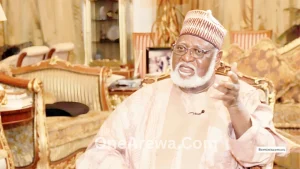
General Abdulsalami Abubakar: Peaceful Transfer of Power and Retirement
In a historic move that surprised many observers, General Abdulsalami Abubakar handed over power on 29 May 1999 to the elected civilian president, Chief Olusegun Obasanjo, and voluntarily retired from the military.
His peaceful transition set a benchmark for democratic leadership in Africa.
Check Out: Abubakar Imam (1911–1981): Northern Nigeria’s Pioneer Intellectual and Political Icon
General Abdulsalami Abubakar Legacy
The legacy of General Abdulsalami Abubakar is complex and often debated. While he is widely praised for restoring democracy to Nigeria, his ties to the Abacha regime and events under his brief rule have drawn criticism.
In the United States, a scheduled lecture at Chicago State University faced opposition due to his previous support for the Abacha military dictatorship, notorious for its human rights abuses.
Additionally, some Nigerians filed lawsuits against Abubakar in the U.S., accusing him of complicity in the death of 1993 president-elect M.K.O. Abiola, who died in custody during the military’s refusal to recognize his election victory.
Despite these controversies, Abubakar played a key role in African peace processes.
He presided over the 2003 peace talks in Liberia, which helped bring an end to that nation’s civil war, a role featured in the award-winning documentary Pray the Devil Back to Hell.
He also chaired the Commonwealth Observer Group during the 2002 Zimbabwe presidential election, which concluded that the election process failed to meet democratic standards.
However, Abubakar’s government also introduced the 1999 Nigerian Constitution, which remains highly controversial.
Critics argue that the constitution overrepresents Islamic interests, contributing to ongoing ethno-religious tensions in Nigeria.
According to sources like NINA’s Voice, this document is viewed by many as a flawed foundation for the Nigerian state, seen by some ethnic nationalities as a tool of marginalization.
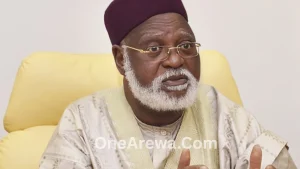
General Abdulsalami Abubakar Personal Life
General Abdulsalami Abubakar is married to Fati Abubakar, and together they have six children.
He is known for maintaining a private and disciplined lifestyle, often staying away from the political limelight since his retirement.
General Abdulsalami Abubakar Awards and Honours
General Abdulsalami Abubakar has received numerous national and international honors for his service, leadership, and efforts in peacebuilding. These awards, listed alphabetically, include:
-
Defence Service Medal (DSM) – Nigeria
-
Distinguished Service Medal (DSM)
-
Forces Service Star (FSS) – Nigeria
-
General Service Medal (GSM) – Nigeria
-
Grand Commander of the Order of the Federal Republic (GCFR) – Nigeria’s highest national honor
-
International Gold Medal, awarded by ECOWAS
-
Meritorious Service Star (MSS)
-
National Service Medal (NSM) – Nigeria
-
Republic Medal (RM)
-
Rainbow/PUSH Coalition Peace Prize
-
Silver Jubilee Medal (SJM)
-
Order of the Star of Ghana
-
Ufuk Dialogue Peace Award (2022)
General Abdulsalami Abubakar Publications
General Abdulsalami Abubakar is the author of:
-
Nigeria: A New Beginning (1998): Publisher: Federal Ministry of Information and Culture
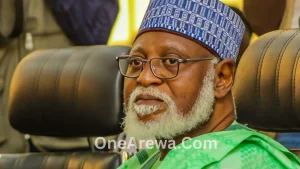
General Abdulsalami Abubakar Trivia
Only Nigerian military ruler to hand over power on schedule: Unlike many military leaders in Africa, Abubakar followed through on his promise to transition Nigeria to democracy within 11 months.
UN Peacekeeper: He once led Nigeria’s United Nations peacekeeping troops in Lebanon in 1981, showcasing his early role in international diplomacy and conflict resolution.
Trained in the U.S.: Abubakar received part of his military education in the United States, giving him international exposure early in his career.
Peace Advocate: He played a pivotal role in Liberia’s 2003 peace process and was featured in the documentary Pray the Devil Back to Hell.
Election Monitor: He chaired the Commonwealth Observer Group to Zimbabwe’s 2002 presidential elections, which reported major concerns about electoral freedom and fairness.
Highly Decorated: He holds numerous national and international medals and awards, including Nigeria’s highest national honor, the GCFR, and the Order of the Star of Ghana.
Author: He published a book titled Nigeria: A New Beginning in 1998, outlining his vision for a peaceful transition to democracy.
Family Man: He is married to Fati Abubakar, and they have six children.
Lives in Minna: After retirement, he quietly returned to his home in Minna, Niger State, where he remains respected for his humility and dedication to peace.
Controversial Legacy: Despite his democratic credentials, his role in drafting Nigeria’s 1999 Constitution has been critiqued for allegedly favoring Islamic interests, igniting debate about ethno-religious balance in the country.
FAQs
Who Is General Abdulsalami Abubakar?
General Abdulsalami Abubakar (born June 13, 1942, in Minna, Niger State, Nigeria) is a retired Nigerian military general, peace advocate, and the former Head of State of Nigeria from June 9, 1998, to May 29, 1999.
He is widely recognized for his pivotal role in transitioning Nigeria from military to democratic rule, a landmark achievement that laid the foundation for the country’s Fourth Republic.
Coming from Nigeria’s Middle Belt region, Abubakar began his military career in 1966, receiving training in both Nigeria and the United States.
He gained international recognition when he led Nigeria’s UN peacekeeping mission in Lebanon in 1981.
Rising through the military hierarchy, he held several key command positions and was appointed Chief of Defence Staff in 1997 by General Sani Abacha.
After Abacha’s sudden death on June 8, 1998, Abubakar was sworn in as Head of State the next day.
In contrast to many of his military predecessors, he honored his promise to restore democracy by dissolving Abacha-era political structures, initiating a new framework for multiparty elections, and successfully conducting presidential elections in January 1999.
On May 29, 1999, he peacefully handed over power to the newly elected President Olusegun Obasanjo, becoming one of Africa’s rare examples of a military leader who voluntarily relinquished power.
After retirement, Abubakar returned to Minna, where he continues to contribute to regional peacebuilding and diplomacy.
2: What made General Abdulsalami Abubakar’s regime unique among Nigerian military rulers?
Unlike most military leaders, he kept his promise to return Nigeria to democracy, organizing elections and handing over power peacefully within just 11 months.
3: Which president did General Abdulsalami Abubakar hand over to in 1999?
Chief Olusegun Obasanjo, who won the 1999 presidential elections.
4: What was General Abdulsalami Abubakar’s major international role after leaving office?
He mediated peace talks in Liberia in 2003 and chaired the Commonwealth Observer Group during Zimbabwe’s 2002 elections.
5: Was General Abdulsalami Abubakar involved in Nigeria’s 1999 Constitution?
Yes. His government midwifed the 1999 Constitution, which has since been criticized for favoring certain religious interests and lacking inclusiveness.
6: What controversy surrounds General Abdulsalami Abubakar’s international image?
He faced opposition during a lecture tour in the U.S. due to his ties to the Abacha regime and was also sued for alleged human rights abuses during that era.
7: What role did General Abdulsalami Abubakar play in the Nigerian military before becoming head of state?
He served as Nigeria’s Chief of Defence Staff and earlier led Nigerian peacekeeping troops in Lebanon under the United Nations in 1981.
8: What awards and recognitions has General Abdulsalami Abubakar received?
He received the GCFR (Nigeria’s highest honor), Order of the Star of Ghana, Rainbow/PUSH Peace Prize, and Ufuk Dialogue Peace Award, among others.
9: What is the title of the book written by General Abdulsalami Abubakar?
Nigeria: A New Beginning – published in 1998.
10: Where is General Abdulsalami Abubakar now?
He lives in retirement in his hometown, Minna, Niger State, Nigeria, and remains active in peace and conflict resolution efforts.
Check Out: General Yakubu Gowon: Nigeria’s Youngest Head of State and Civil War Leader (1966–1975)
In conclusion
General Abdulsalami Abubakar is a prominent figure in Nigerian military and political history, known for his steady rise through the ranks of the Nigerian Army and his pivotal role in the peaceful transition from military to democratic rule in 1999.
His military career, marked by significant leadership roles both in Nigeria and internationally, culminated in his appointment as the Head of State following the sudden death of General Sani Abacha.
Abubakar’s commitment to a return to civilian governance set the stage for the Fourth Republic, making him one of the few African military leaders to voluntarily relinquish power.
His actions during this critical period have solidified his legacy as a key player in Nigeria’s democratic journey, and his continued involvement in peacebuilding efforts underscores his dedication to regional stability and diplomacy.
Check Out: General Murtala Ramat Muhammed: Nigeria’s Boldest Head of State (1975–1976)
Check Out: General Ibrahim Badamasi Babangida: Nigeria’s Military Leader and Head of State (1985–1993)
